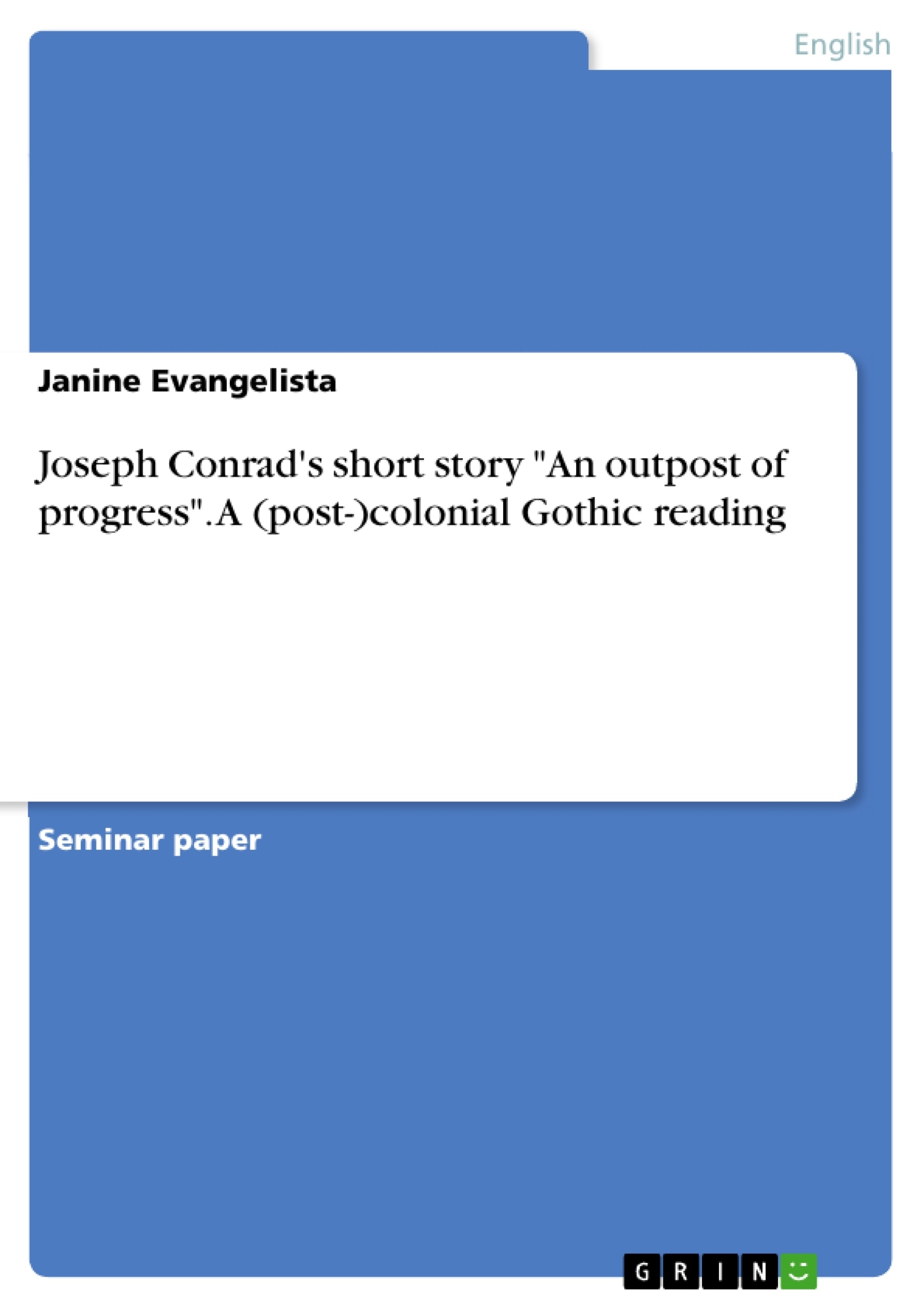At first sight, postcolonial theories and Gothic writing appear to have barely features in common. On the one hand, Gothic as a genre flourished with Horace Walpole's novel The Castle of Otranto in 1764, which celebrated irrationality and explored "feelings, desires and passions which compromised the Enlightenment project of rationally calibrating all forms of knowledge and behaviours" (Smith and Hughes 1).
In the succeeding decades, numerous writers trail Walpole by publishing their individual Gothic novels, e.g. Matthew Gregory Lewis' The Monk, Bram Stoker's Dracula, and Mary Shelley's Frankenstein; Or, the Modern Prometheus. On the other hand, studies in colonialist discourse contemplate colonialisation and its aftermath on individuals, communities and cultures, emerging in the late 1970s as essence of literary criticism. Although both genres appear to focus on antithetic research domains considering time references as well as contexts, they still share their enthusiasm in questioning conceptions of rationality. Therefore, both study areas challenge issues, of which humans are incapable to explain. Thereby, the creation of an 'Other' is crucial.
On the one hand, postcolonial and colonial domains challenge and attempt at standing reason for the clash of cultures with which colonisers and colonised people are confronted. On the other hand, emphasising the idea of transgression, Gothic fiction inhabits images of the Other as well, illustrating anew the impossibility for explanation.
Joseph Conrad published his short story "An Outpost of Progress" in 1897 and collected it to his work Tales of Unrest in 1898. "An Outpost of Progress" has become subject to crucial criticism of imperialism, colonialisation and civilisation, by describing the story of two white men, Kayerts and Carlier, who are in charge of a trading post in the Congo cabin. Consequently, the story represents the difficulties between two oppositional cultures and the effects of this encounter. Considering the dark ambience created throughout the story, this short story can be analysed in terms of a postcolonial gothic reading. This paper aims, therefore, to outline main reasons why this short story accords with characteristics of a postcolonial and colonial gothic reading.
Table of Contents
- Introduction
- Theoretical Approach: Postcolonial Gothic
- (Post-) Colonialism
- Gothic Fiction
- Otherness/'Othering'
- Joseph Conrad's "An Outpost Of Progress"
- Postcolonial Discourse
- The Gothic in the Short Story
- Conclusion A Postcolonial Gothic Reading
Objectives and Key Themes
This paper examines Joseph Conrad's short story "An Outpost of Progress" through the lens of postcolonial Gothic theory. It aims to highlight the story's alignment with characteristics of both postcolonial and Gothic literature, exploring how Conrad's depiction of colonial encounters and the anxieties of civilization within a dark and unsettling environment can be analyzed through this combined theoretical framework.
- The intersection of postcolonialism and Gothic literature
- The portrayal of colonial encounters and their effects on individuals and cultures
- The exploration of themes of otherness, transgression, and the breakdown of rationality
- The use of Gothic elements to evoke a sense of unease and instability
- The critique of colonialism and its impact on both colonizers and colonized populations
Chapter Summaries
The introduction sets the stage by highlighting the seemingly disparate nature of postcolonial theories and Gothic writing. The author then introduces the theoretical framework of postcolonial Gothic and provides a thorough overview of (post-)colonialism, outlining its historical context and key features. The chapter on Gothic fiction delves into its evolution, focusing on key elements such as irrationality, transgression, and the concept of "otherness." The analysis of Conrad's "An Outpost of Progress" examines its postcolonial discourse, exploring the clash of cultures, the impact of colonialism on individuals, and the narrative's depiction of a dark and oppressive atmosphere. The chapter then examines how the story embraces Gothic elements to create a sense of suspense and unease.
Keywords
Postcolonial Gothic, colonialism, postcolonialism, Gothic fiction, Joseph Conrad, "An Outpost of Progress," otherness, othering, imperialism, civilization, barbarity, exploitation, transgression, irrationality, darkness, suspense, unease.
Frequently Asked Questions
What is a postcolonial Gothic reading?
It is a literary analysis that combines postcolonial theory's focus on colonial encounters with Gothic fiction's elements of irrationality, unease, and the "Other."
What is Joseph Conrad's "An Outpost of Progress" about?
The story follows two white men, Kayerts and Carlier, in charge of a remote trading post in the Congo, depicting their physical and mental decline.
Which Gothic elements are present in the story?
Conrad uses a dark, oppressive atmosphere, suspense, and the breakdown of the characters' rationality to create a Gothic sense of unease.
How does the story critique colonialism?
It highlights the exploitation, the clash of cultures, and the fragility of "civilization" when removed from its European context.
What role does "Othering" play in the narrative?
The creation of an "Other" is central to both Gothic and postcolonial aspects, representing the colonizers' inability to understand the local culture.
- Arbeit zitieren
- Janine Evangelista (Autor:in), 2018, Joseph Conrad's short story "An outpost of progress". A (post-)colonial Gothic reading, München, GRIN Verlag, https://www.grin.com/document/415809



